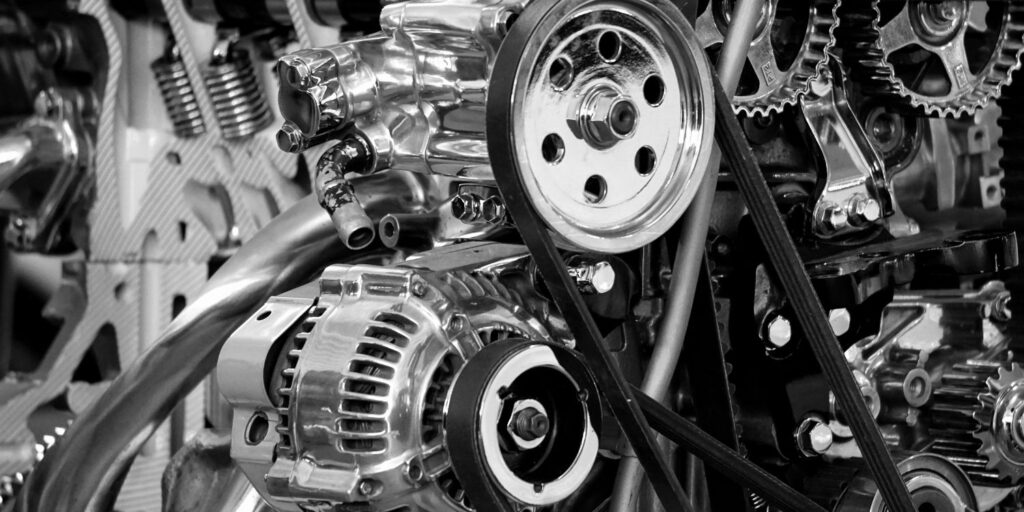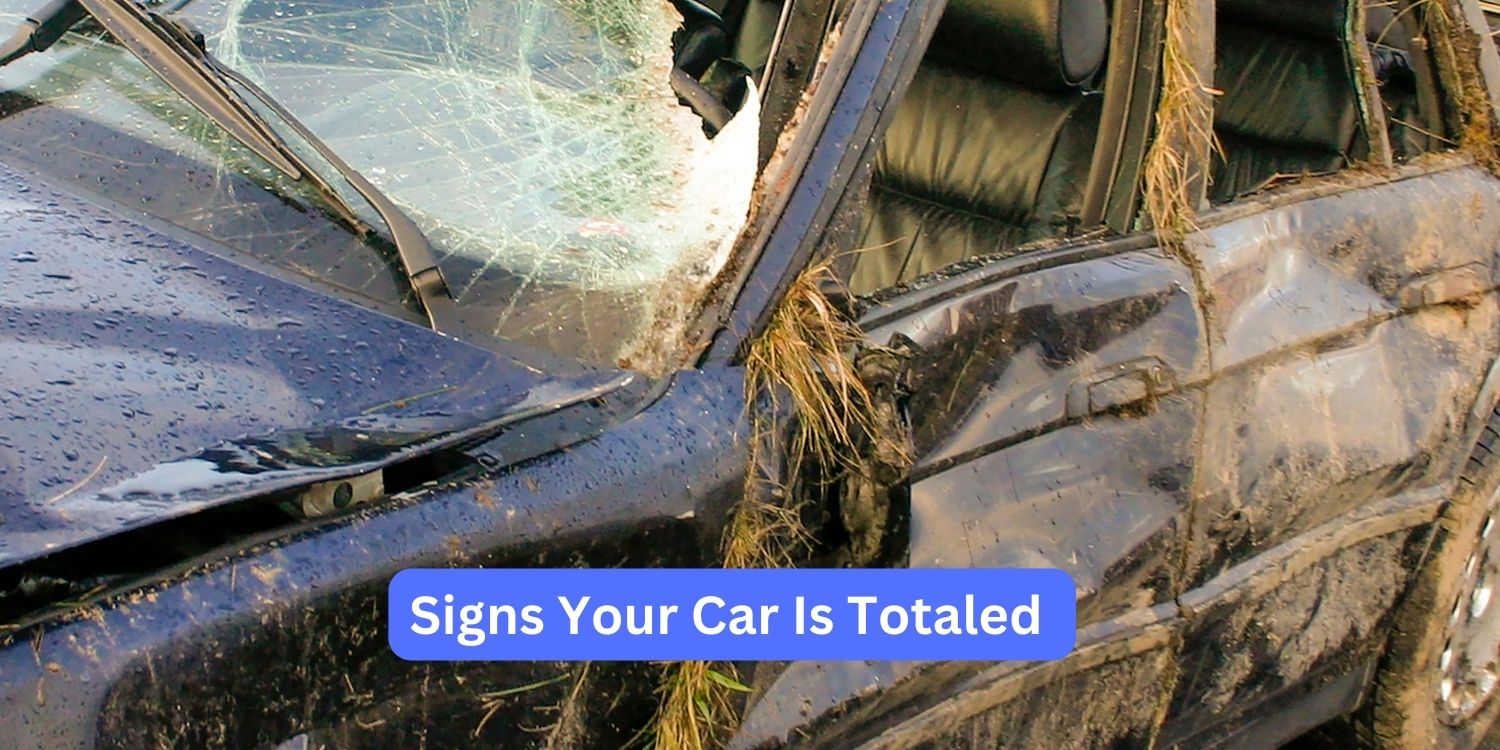Car accidents are distressing events that can leave a lasting emotional and financial impact.
One of the most immediate concerns following a collision is assessing the damage to your vehicle and determining whether it’s salvageable or if it’s considered totaled.
Understanding the signs that suggest your vehicle is totaled will let you make informed decisions about repairs, insurance claims, and,ultimately, whether or not it`s time to allow the passing of your vehicle.
Visible Damage Assessment
let’s discuss it
Structural Damage
The structural integrity of your vehicle is paramount for its safety and functionality. One of the most evident signs that your car may be totalled is if it sustains extensive structural damage.
This includes damage to the frame, chassis, or pillars that support the vehicle’s structure. When these components are severely compromised, repairing them can be difficult and costly, often exceeding the car’s value.
Airbag Deployment
Modern cars have sophisticated safety features, including airbags designed to deploy during significant collisions. If your airbags deploy during an accident, it’s a strong indicator that the impact is severe.
In many cases, the cost of replacing deployed airbags and other associated repairs can quickly surpass the car’s value, leading insurers to declare it totalled.
Functional Assessment
let’s discuss it
Engine Damage
The engine is the heart of any vehicle, and significant damage to this vital component can render the car inoperable. Severe engine damage can occur in high-impact collisions or fire or flooding accidents.
Repairing or alternative of a broken engine may be prohibitively expensive, frequently exceeding the car`s value. If the car`s engine is beyond repair, it is a sturdy indication that it is totaled.

Drivetrain Damage
Damage to the drivetrain, including the transmission, axles, or differential, can render a vehicle inoperable. Severe impacts can cause misalignments or fractures in these critical components.
High Mileage and Age
In some cases, even relatively minor damage can result in a car being declared totalled if it’s older or has high mileage. Insurance companies consider the vehicle’s pre-accident value when determining whether it’s economical to repair.
Older cars with significant mileage may have a lower market value, making relatively minor damage more likely to result in a total loss.
Insurance Considerations
let’s discuss it
Repair Costs vs Car Value
Ultimately, whether a car is deemed totaled often comes down to simple economics. Insurance companies often compare the cost of repairs to the car’s actual cash value (ACV).
If the repair costs exceed a certain percentage of the ACV, typically around 75% to 80%, insurers may declare the vehicle totaled.
This threshold varies depending on the extent of damage, the vehicle’s age, and local regulations. If the repair estimate surpasses the car’s worth, accepting the insurance payout and moving on to a replacement vehicle may be more practical.

Uninsured Damage
If you’re involved in an accident where the at-fault party is uninsured or underinsured, you may be responsible for covering the repair costs. In such cases, it’s crucial to weigh the expense of repairs against the vehicle’s value.
If the cost of repairs is prohibitive, it may be more practical to consider the car totaled and explore alternative options, such as selling it for salvage or parting it out.
Salvage Value
A salvage title is issued to a vehicle that has been severely damaged, often to the point where repairs are deemed uneconomical by insurance companies.
Once a car receives a salvage title, it’s generally considered totaled, and its resale value decreases significantly.
If your car sustains damage resulting in a salvage title, it indicates it’s time to let go and move on to a replacement vehicle.
Safety Concerns
let’s discuss it
Compromised Structural Integrity
Even if a car appears superficially intact after an accident, compromised structural integrity can pose significant safety risks. Driving a vehicle with weakened structural elements increases the likelihood of severe injuries in subsequent accidents.
Electrical System Damage
High-impact collisions can damage a car’s electrical system, leading to malfunctions in crucial safety features such as ABS, traction control, and stability control systems.
Options After Total Loss
let’s discuss it
Salvage Options
Sometimes, owners may sell their totaled vehicle to salvage yards, which dismantle the car for usable parts or scrap metal. This option allows owners to recoup some value from the vehicle.
Replacement Considerations
When faced with a totaled car, owners must weigh the costs of repairs against the vehicle’s value. In many cases, purchasing a new car may be a more financially viable option than attempting to repair the totaled one.
Seeking Professional Advice
Before making any decisions regarding a totaled vehicle, it’s advisable to consult with a qualified mechanic. Mechanics can provide insights into the extent of the damage and the feasibility of repairs.
Insurance Adjuster Assessment
Insurance adjusters play a crucial role in determining whether a car is totaled. Their expertise can help owners understand the insurance company’s decision and explore available options.
Frequently Asked Questions
Frequently asked questions about Signs Your Car Is Totaled are :
What are the signs that my car is totaled after an accident?
Signs of a totaled car include extensive structural damage, airbag deployment, severe engine or drivetrain damage, high mileage, or when repair costs exceed the car’s value.
How do insurance companies determine if a car is totaled?
Insurance companies compare repair costs to the car’s cash value (ACV). The car may be declared totaled if repairs surpass a certain percentage of the ACV (typically 75% to 80%).
What should I do if my car is totaled?
If your car is totaled, consider salvage options or weigh the costs of repairs against purchasing a new vehicle.
Seeking professional advice from a mechanic or insurance adjuster is advisable.
Can I still drive my car if it appears intact after an accident?
Even if a car appears intact, compromised structural integrity or electrical system damage can pose safety risks. It’s essential to prioritize safety and seek professional assessment.
What are salvage options for a totaled car?
Salvage yards may purchase totaled vehicles for usable parts or scrap metal. This allows owners to recoup some value from the vehicle.
Should I accept the insurance payout if my car is totaled?
Accepting the insurance payout may be practical if repair costs exceed the car’s value.
However, consider replacement options and seek professional advice before making a decision.
Why is it important to consult a qualified mechanic or insurance adjuster?
Consulting with experts can provide insights into the extent of the damage and the feasibility of repairs.
Insurance adjusters also play a crucial role in understanding the insurance company’s decision and exploring available options.
Final Words
To sum up, recognizing the signs that your car is totaled is pivotal for making informed decisions following an accident. Car accidents can be emotionally and financially distressing, but understanding when it’s time to let go of your vehicle can alleviate some of the burden.
Several indicators exist, from visible damage assessments to functional evaluations. Extensive structural damage, airbag deployment, and severe engine or drivetrain damage are clear signs that your car may be beyond repair.
Insurance considerations also play a significant role in determining whether a vehicle is totaled. Insurers compare repair costs to the car’s actual cash value, and if the repairs exceed a certain percentage, the car may be declared totaled.
Salvage options and replacement considerations offer alternatives for owners facing a totaled vehicle, but seeking professional advice, such as consulting with a qualified mechanic or insurance adjuster, is crucial in making well-informed decisions.
Ultimately, safety should always be a top priority. Even if a car appears superficially intact, compromised structural integrity or electrical system damage can pose significant safety risks.
Trusting your instincts and weighing all available options can help you navigate the aftermath of a car accident with clarity and confidence.



